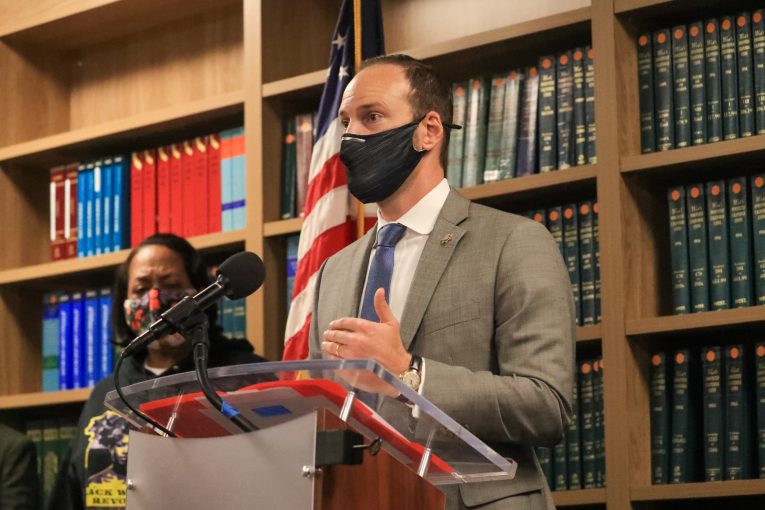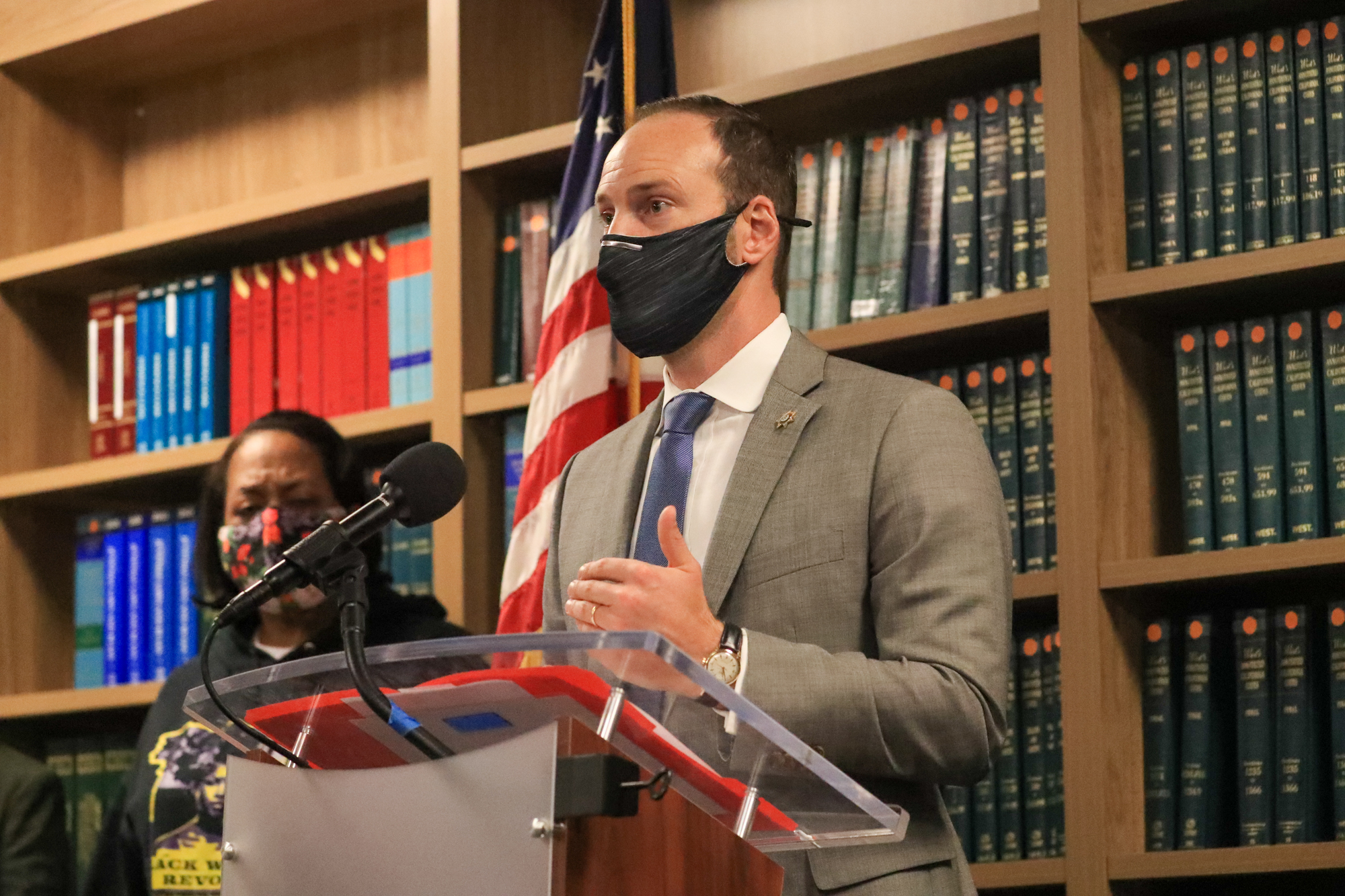
 By David M. Greenwald
By David M. Greenwald
Executive Editor
San Francisco, CA – When San Franciscans a few months ago overwhelming tossed out the school board members being recalled with more than 70 percent yes votes, a key question—did that mean Chesa Boudin, the DA facing a June recall, was in trouble?
He may well be still, it’s hard to know for sure, but one thing is clear—some of the forces that aligned against the school board are not present against Boudin. In January, for example, the San Francisco Chronicle endorsed that recall.
At the time they wrote: “In our opposition to the Newsom recall, we wrote that ‘cutting an elected term short based solely on the incumbent’s performance makes sense only in the context of abject failure or unfitness.’ Do López, Moliga and Collins meet this criterion?”
Their answer: “They do. All three should be recalled.”
On the other hand, they conclude the opposite for Boudin: “Chesa Boudin is many things. Incompetent isn’t one of them. Vote no on recall.”
Will that be enough to save him? Hard to know. I’m not a big believer that editorials are huge influencers. However, I am a big believer in using such measurers to assessment support and opposition.
First the Chronicle runs through a scenario of bad crimes and notes, “Residents [are] livid about “the desecration of any sort of property rights or safety in San Francisco.””
But then they point out, “No, these aren’t descriptions of life under District Attorney Chesa Boudin. This was San Francisco in 2017, 2018 and 2019 — in the run-up to Boudin’s election. Then, like now, headlines inspired outrage. Then, like now, there were those who demanded the city get tough.”
The Chronicle notes that “in the 2019 election, when given the chance to select Nancy Tung, who vowed to crack down on drug and quality-of-life crimes, San Francisco voters rejected her resoundingly. They also narrowly dismissed Suzy Loftus, the then-acting district attorney who had charted an approach straddling toughness and reform.”
Instead, San Francisco voted for Boudin, who has done largely what he said he was going to do, including to “pursue a more compassionate form of criminal justice that ‘diverted’ nonviolent offenders away from jails and prisons and toward court-monitored rehabilitation programs that could potentially help them escape the cycle of recidivism.”
They added, “Voters weren’t naive in making this selection. Concerns over the excesses and racial injustices of California’s traditional crime and punishment justice system were well-founded — and available data suggested Boudin’s approach could have merit.”
Indeed, the Chronicle notes: “A 2016 San Francisco Board of Supervisors Budget and Legislative Analyst report found that police crackdowns on the kind of low-level quality-of-life crimes that plague the city wasted money and produced little results. The report recommended shifting resources away from the criminal justice system to social and housing services.”
Moreover, “Diversion data also showed promise. One San Francisco program boasted a 96% success rate in preventing recidivism — although some criminal justice experts cautioned that such results might be cherry-picked, because diversion programs at that time were typically reserved for offenders who showed the best chances of success.”
They note that critics have branded this “catch and release.” The Chronicle argues, “But this is a cynical depiction of the plan voters knew they were signing up for.”
I would go further than this and note that the current system of incarceration is tantamount to catch and release and catch again—we have a huge failure of incarceration to prevent future crime. And the reason is because we lock people in a cage for a period of time but don’t give them the tools to escape the conditions that led to the commission of crime in the first place.
We need to break that cycle—and what has been recommended won’t work.
The Chronicle notes former prosecutor Brooke Jenkins, “a self-professed progressive who recently resigned from Boudin’s office, is among those leading the recall charge. In an interview with the editorial board, she argued that Boudin has brought a public defender’s mindset to his office, and in doing so has removed the will to effectively prosecute crime.”
We have questioned previously whether she is progressive. For instance, her egregious prosecutorial misconduct. The public defender on a key case called into question her account.
Jenkins said she is progressive, but then “questioned his overreliance on diversion — and the efficacy with which he used it — and advocated for a balanced approach between compassion and toughness, like that of Loftus.”
The Chronicle responds, “Tactical differences of opinion, however, are not recallable offenses. And Jenkins or anyone else who decries Boudin’s methods and execution are free to run against him in two years.”
In his recall endorsement interview with The Chronicle, “Boudin was thoughtful, strategic and more than capable of justifying his decision-making. Boudin may be many things, but incompetent is not among them.”
The Chronicle points out: “Crime stats that mirror those of when Boudin took office do not justify a recall. Violent crime is low and has stayed low even as it has surged across the country at rates not seen since the 1960s. Property crime rates were unacceptable before Boudin arrived and they are unacceptable now. San Franciscans have a right to be outraged. But prematurely sacking the district attorney won’t be a magic fix.”
This is to me is the critical point—for all the complaints about crime in San Francisco, it is not clear there is anything that is happening there that is not happening in Sacramento or, for that matter, Texas.
The Chronicle makes this point well.
“Cities across the country — regardless of their criminal justice approach — have struggled after COVID lockdowns lifted. A tough-talking district attorney may offer reassurance to some uneasy minds, but aggression is hardly a criminal panacea,” they write. “One need only look to Sacramento, where aggregated assaults and homicides shot up 43% and 67% respectively from 2019 to 2021 under District Attorney Anne Marie Schubert’s notoriously harsh watch.”
They add, “Reducing crime demands holistic solutions, and Boudin is far from the only leader who needs to step up.
“Boudin vowed to fight crime by building a justice infrastructure that attempts to rehabilitate instead of incarcerate. That effort is a work in process. It may never come to fruition. But San Francisco voters signed up for a four-year experiment. We should have the courage of our conviction to wait for the results,” they conclude.
Not a huge fan of the ending here. I would instead argue that the criminal justice system is broken and Chesa Boudin has only been given two years in the middle of a pandemic which has shut down our nation and shut down the courts in San Francisco to attempt to change course.
The question we keep coming back to: will it be enough to save him? We’ll find out following the completion of the vote on June 7.

